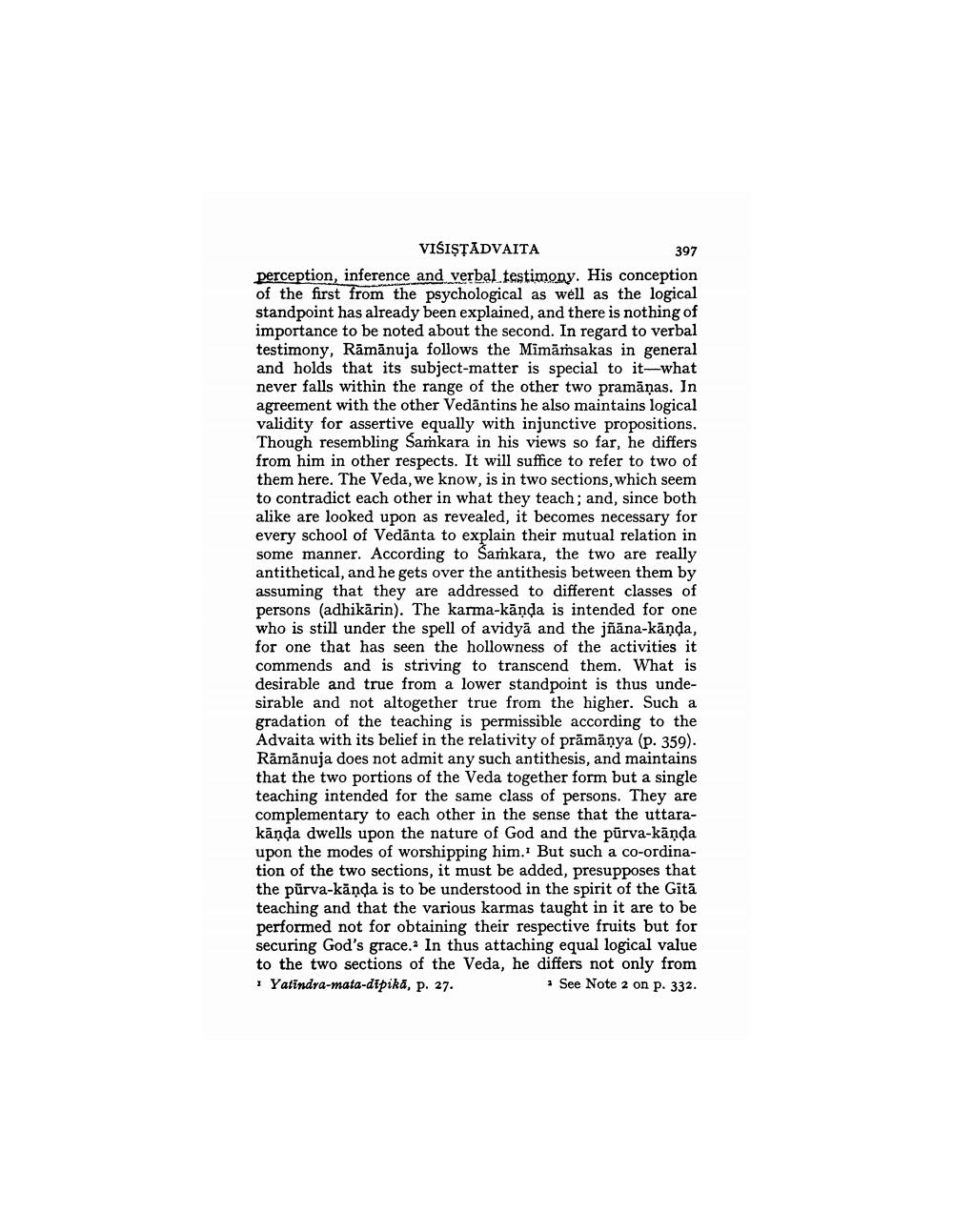________________
VISISTĀDVAITA
397 perception, inference and verbal testimony. His conception of the first from the psychological as well as the logical standpoint has already been explained, and there is nothing of importance to be noted about the second. In regard to verbal testimony, Rāmānuja follows the Mimāṁsakas in general and holds that its subject matter is special to it-what never falls within the range of the other two pramāņas. In agreement with the other Vedāntins he also maintains logical validity for assertive equally with injunctive propositions. Though resembling Sarkara in his views so far, he differs from him in other respects. It will suffice to refer to two of them here. The Veda, we know, is in two sections, which seem to contradict each other in what they teach; and, since both alike are looked upon as revealed, it becomes necessary for every school of Vedānta to explain their mutual relation in some manner. According to Samkara, the two are really antithetical, and he gets over the antithesis between them by assuming that they are addressed to different classes of persons (adhikärin). The karma-kānda is intended for one who is still under the spell of avidyā and the jñāna-kānda, for one that has seen the hollowness of the activities it commends and is striving to transcend them. What is desirable and true from a lower standpoint is thus undesirable and not altogether true from the higher. Such a gradation of the teaching is permissible according to the Advaita with its belief in the relativity of prāmänya (p. 359). Rămănuja does not admit any such antithesis, and maintains that the two portions of the Veda together form but a single teaching intended for the same class of persons. They are complementary to each other in the sense that the uttarakānda dwells upon the nature of God and the pūrva-kānda upon the modes of worshipping him. But such a co-ordination of the two sections, it must be added, presupposes that the purva-kända is to be understood in the spirit of the Gitā teaching and that the various karmas taught in it are to be performed not for obtaining their respective fruits but for securing God's grace. In thus attaching equal logical value to the two sections of the Veda, he differs not only from 1 Yatindra-mata-dipika, p. 27.
See Note 2 on p. 332.




